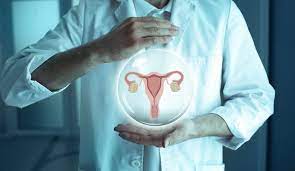Infertlity Assessment Female

Female Infertility Assessment in Sirsa, Haryana
Infertility in females is a complex and emotionally challenging medical condition characterized by the inability to conceive or sustain a pregnancy despite regular, unprotected sexual intercourse for an extended period, typically one year or more. It's important to recognize that infertility is not a rare issue, as it affects millions of couples worldwide. Female infertility can result from various factors, including problems with ovulation, the fallopian tubes, the uterus, or issues related to age, lifestyle, or underlying medical conditions. Understanding the causes of infertility is crucial for guiding diagnosis and developing effective treatment plans. Couples facing infertility often seek medical evaluation and infertility assessment in Sirsa, Haryana from fertility specialists to explore the options available for achieving their dream of starting or expanding their family.
Female infertility can be caused by a variety of factors that affect the woman's reproductive system, hormonal balance, or overall health. Some common causes and factors contributing to female infertility include:
- Ovulation Disorders: Irregular or absent ovulation (release of eggs from the ovaries) can significantly reduce the chances of conception. Conditions like polycystic ovary syndrome (PCOS) and hypothalamic dysfunction can disrupt ovulation.
- Fallopian Tube Blockage: Blocked or damaged fallopian tubes can prevent the fertilization of an egg by sperm or the passage of a fertilized egg into the uterus. This can result from infections, pelvic inflammatory disease (PID), or endometriosis.
- Uterine Issues: Abnormalities in the uterus, such as fibroids, polyps, or structural abnormalities, can interfere with implantation or a healthy pregnancy.
- Age-Related Factors: Female fertility typically declines with age, especially after the age of 35. This is because the quantity and quality of a woman's eggs decrease over time.
- Hormonal Imbalances: Disorders of the endocrine system, including thyroid problems, can disrupt the menstrual cycle and affect fertility.
- Pelvic Inflammatory Disease (PID): Infections of the reproductive organs can cause scarring and damage to the fallopian tubes and other structures, leading to infertility.
- Autoimmune Disorders: Certain autoimmune conditions may affect the reproductive system and reduce fertility.
- Lifestyle Factors: Smoking, excessive alcohol consumption, drug use, obesity, and extreme levels of stress can all negatively impact fertility.
- Medical Treatments: Some medical treatments, such as chemotherapy or radiation therapy, can harm the ovaries and affect fertility.
- Genetic Factors: In rare cases, genetic abnormalities can lead to female infertility.
Female infertility assessment in Sirsa, Haryana typically involves a comprehensive evaluation by a healthcare provider specializing in reproductive medicine. This may include a detailed medical history, physical examination, imaging studies, hormonal tests, and procedures like hysterosalpingography (HSG) or laparoscopy to assess the reproductive organs. Treatment may involve lifestyle changes, medications, surgery, or assisted reproductive techniques such as in vitro fertilization (IVF) or intrauterine insemination (IUI) to help the couple achieve a successful pregnancy.
Several risk factors can increase a woman's likelihood of experiencing infertility. These risk factors may make it more challenging for a woman to conceive or carry a pregnancy to term. It's important to note that the presence of one or more risk factors does not guarantee infertility, but it may increase the probability. Some common risk factors for female infertility include:
- Age: As women age, especially after the age of 35, fertility naturally decreases. This is primarily due to a decline in the quantity and quality of eggs in the ovaries.
- Irregular Menstrual Cycles: Women with irregular menstrual cycles, including those with conditions like polycystic ovary syndrome (PCOS) or irregular ovulation, may have a higher risk of infertility.
- Endometriosis: It is a condition in which tissue similar to the uterine lining grows outside the uterus. It can cause scarring, adhesions, and blockages in the reproductive organs, impacting fertility.
- Uterine Conditions: Abnormalities in the uterus, such as fibroids (noncancerous growths) or polyps (abnormal tissue growth), can interfere with implantation or pregnancy.
- Blocked or Damaged Fallopian Tubes: Fallopian tube blockages or damage can prevent the sperm from reaching the egg or impede the fertilized egg's journey to the uterus. This can result from infections, endometriosis, or previous surgeries.
- Pelvic Surgery: Surgeries involving the reproductive organs or pelvic area may lead to adhesions or scarring that affects fertility.
- Stress: Chronic stress can affect hormonal balance and disrupt the menstrual cycle, potentially contributing to infertility.
- Obesity: Excess body weight, particularly if it leads to hormonal imbalances, can impact ovulation and fertility.
- Underweight: Being significantly underweight, often associated with excessive exercise or inadequate nutrition, can also disrupt menstrual cycles and ovulation.
- Smoking: Smoking has been linked to reduced fertility in women, as it can accelerate egg loss and damage the reproductive system.
- Alcohol and Drug Use: Excessive alcohol consumption and the use of certain drugs can negatively impact fertility.
- Family History: A family history of early menopause or fertility issues may increase the risk of similar challenges in future generations.
It's essential to remember that while these risk factors can increase the likelihood of infertility, many women with one or more risk factors can still conceive naturally or with appropriate medical assistance.
While it's not always possible to prevent infertility in females, there are several steps women can take to promote their reproductive health and reduce the risk of fertility issues. Here are some strategies for maintaining reproductive health:
- Practice Safe Sex: Sexually transmitted infections (STIs) should be prevented. Untreated STIs can lead to pelvic inflammatory disease (PID), which can cause fallopian tube damage and increase the risk of infertility.
- Regular Health Checkups: Schedule regular gynecological checkups and screenings to detect and treat any reproductive health issues early. Early intervention can prevent complications that may affect fertility.
- Manage Chronic Conditions: If you have chronic medical conditions such as diabetes or thyroid disorders, work closely with your healthcare provider to manage them effectively. Well-controlled chronic conditions can reduce the risk of fertility problems.
- Maintain a Healthy Weight: Achieve and maintain a healthy body weight through a balanced diet and regular exercise. Both underweight and overweight conditions can disrupt menstrual cycles and ovulation, affecting fertility.
- Limit Alcohol and Avoid Smoking: Excessive alcohol consumption and smoking have been linked to reduced fertility. Limit or eliminate these behaviors to protect your reproductive health.
Infertility treatments for females in Sirsa, Haryana aim to address underlying causes of fertility issues, stimulate the reproductive process, and improve the chances of achieving pregnancy. The specific treatment chosen depends on the identified causes of infertility and may vary from one person to another. Here are some common infertility treatments for females:
- Ovulation-Stimulating Medications: For women with ovulation disorders (e.g., polycystic ovary syndrome or irregular ovulation), medications such as Clomiphene citrate (Clomid) or letrozole may be prescribed to stimulate ovulation.
- Fertility Drugs and Hormonal Therapy: Gonadotropin medications, such as Follistim or Gonal-F, may be used in combination with other hormones like human chorionic gonadotropin (hCG) to stimulate the ovaries and trigger ovulation.
- Intrauterine Insemination (IUI): IUI involves the placement of sperm directly into the uterus using a thin catheter. It can be used in cases of unexplained infertility or when issues such as cervical mucus hostility are present.
Book Your Free Consultation Now
OTHER TREATMENTS

Infertility Assessment Male
Many infertile couples have more than one cause of infertility, so it's likely you will both need to see a doctor.

Cryoperservation
Patients who undergo in vitro fertilisation (IVF) may produce several eggs

Reproductive Surgery
Reproductive surgery involves surgery in the field of reproductive medicine.
